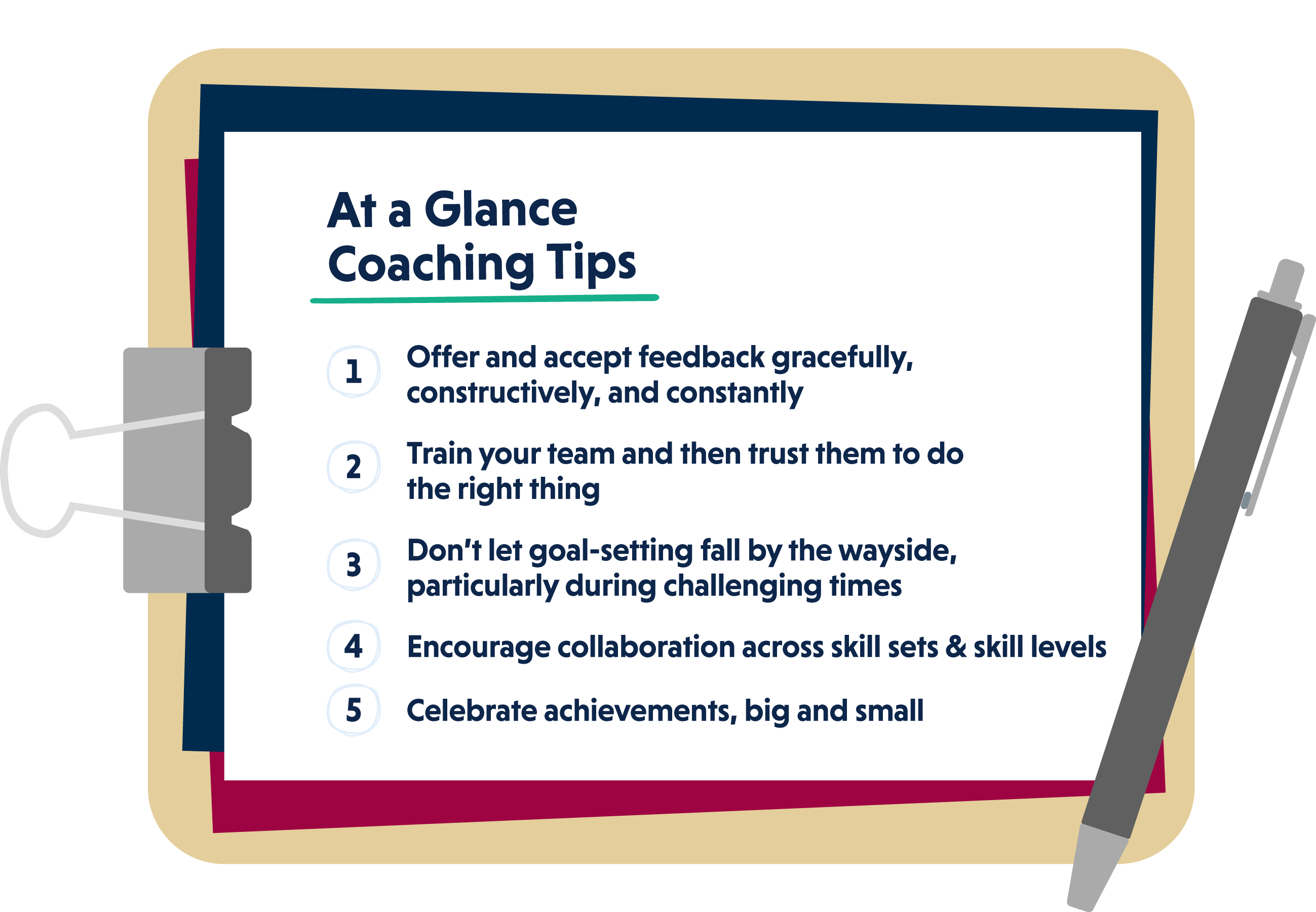Coaching Tips
by Admin
Posted on 12-04-2025 04:12 PM

Understanding the Role of a Coach
The role of a coach is multifaceted. It involves understanding the strengths, weaknesses, and needs of the team members or clients. A coach must be able to create a conducive environment that fosters growth, learning, and development. This requires strong communication skills, empathy, and the ability to build trust. A coach must also be knowledgeable about the subject matter they are coaching in, whether it's a sport, a business skill, or a personal development area.
Setting Goals and Expectations
Setting clear goals and expectations is crucial in coaching. It helps to create a sense of direction and focus. A coach should work with their team members or clients to set specific, measurable, achievable, relevant, and time-bound (SMART) goals. These goals should be aligned with the overall vision and mission of the team or organization. Regular feedback and assessment are also necessary to track progress and make adjustments as needed.
Creating a Positive Team Culture
A positive team culture is essential for success in any coaching endeavor. It involves creating an environment that is supportive, inclusive, and motivating. A coach should encourage teamwork, collaboration, and open communication. They should also promote a growth mindset, where team members feel comfortable taking risks and learning from their mistakes.
Building Strong Relationships
Building strong relationships is critical in coaching. A coach should strive to understand each team member's or client's unique needs, preferences, and learning style. They should be approachable, empathetic, and willing to listen. Strong relationships are built on trust, respect, and open communication. A coach should be able to provide constructive feedback that is specific, timely, and actionable.
Developing a Coaching Plan
Developing a coaching plan is essential for achieving success. It involves identifying the needs and goals of the team members or clients, and creating a tailored plan to address these needs. A coaching plan should include specific strategies, tactics, and timelines. It should also be flexible enough to accommodate changes and adjustments as needed. A coach should regularly review and update the coaching plan to ensure it remains relevant and effective. Find essential financial tips for online coaching at https://monetizeyourcoachingnow.com/pricing-strategies/navigating-finances-with-online-coaching.
Overcoming Challenges and Obstacles
Coaching is not without its challenges and obstacles. A coach may encounter resistance to change, lack of motivation, or limited resources. They should be able to analyze problems, identify solutions, and develop strategies to overcome these challenges. A coach should also be able to manage conflict and difficult situations in a fair, professional, and respectful manner.
Managing Conflict and Difficult Situations
Managing conflict and difficult situations is a critical aspect of coaching. A coach should be able to remain calm, composed, and professional in the face of adversity. They should be able to listen actively, communicate effectively, and resolve conflicts in a fair and respectful manner. A coach should also be able to manage their own emotions and biases, and avoid taking conflicts personally.
Developing Resilience and Adaptability
Developing resilience and adaptability is essential for success in coaching. A coach should be able to bounce back from setbacks, failures, and disappointments. They should be able to adapt to changing circumstances, priorities, and expectations. A coach should be able to think critically, creatively, and strategically, and develop innovative solutions to complex problems.
Evaluating Progress and Performance
Evaluating progress and performance is critical in coaching. A coach should be able to assess the effectiveness of their coaching strategies and techniques. They should be able to track progress, identify areas for improvement, and make adjustments as needed. A coach should also be able to provide regular feedback and evaluation to their team members or clients, and help them to set new goals and challenges.
Conclusion
Coaching is a complex and multifaceted profession that requires a range of skills, knowledge, and qualities. Effective coaching involves understanding the role of a coach, setting clear goals and expectations, creating a positive team culture, building strong relationships, developing a coaching plan, overcoming challenges and obstacles, and evaluating progress and performance. By following these coaching tips and learning how to monetize your coaching skills,coaches can improve their skills and techniques, and help their team members or clients to achieve their full potential.
FAQs
What is the role of a coach in achieving success?
A coach plays a critical role in achieving success by providing guidance, support, and motivation to their team members or clients.
How do I set clear goals and expectations in coaching?
To set clear goals and expectations, work with your team members or clients to set specific, measurable, achievable, relevant, and time-bound (SMART) goals that are aligned with the overall vision and mission.
What is the importance of creating a positive team culture in coaching?
A positive team culture is essential for success in coaching as it fosters growth, learning, and development, and promotes a sense of belonging and motivation among team members.
How do I overcome challenges and obstacles in coaching?
To overcome challenges and obstacles, analyze problems, identify solutions, and develop strategies to address these challenges. Remain calm, composed, and professional in the face of adversity, and be able to adapt to changing circumstances and priorities.
What is the importance of evaluating progress and performance in coaching?
Evaluating progress and performance is critical in coaching as it helps to assess the effectiveness of coaching strategies and techniques, track progress, and identify areas for improvement.
